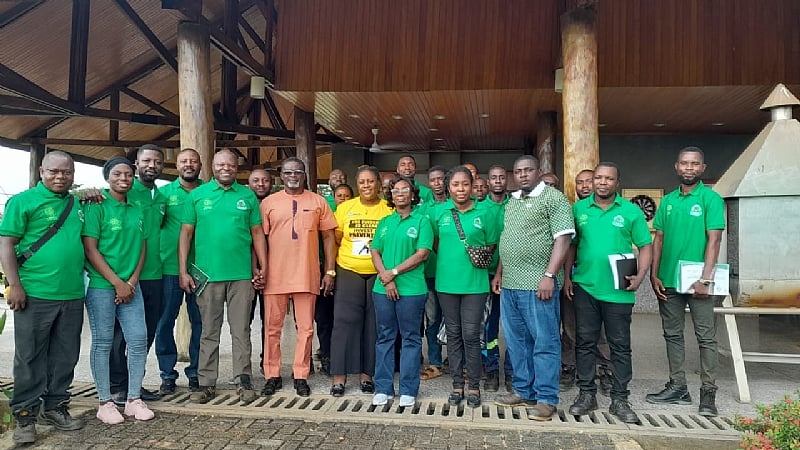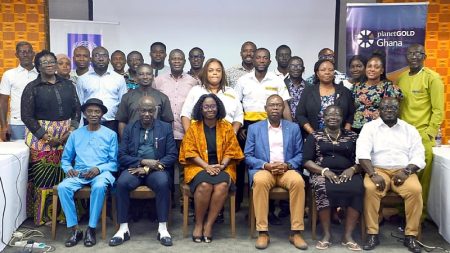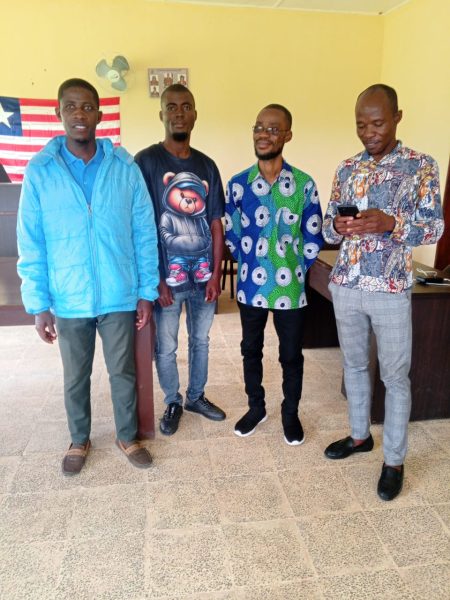The Narcotics Control Commission (NACOC), in collaboration with the Ghana Oil Palm Development Company (GOPDC), orchestrated a comprehensive two-day program in Kwae, Kwaebibirem Municipality, focusing on community sensitization against drug abuse and training on the responsible management of precursor chemicals. This initiative reflects NACOC’s national mandate to combat drug misuse and educate the public, particularly students and industrial workers, about the associated dangers. The program’s dual focus addressed both demand and supply-side aspects of the drug problem, targeting school communities and industrial workers handling precursor chemicals, respectively.
The community sensitization aspect of the program reached over 2,000 students and teachers from GOPDC Basic School, Anweam R/C Basic School, and Asuom Senior High School. Sessions emphasized the health risks associated with drug abuse and promoted the adoption of a healthy, drug-free lifestyle. Crucially, the program introduced the Drug Free Club initiative in the participating schools. This peer-led club empowers students to become active agents of drug prevention within their schools, using positive peer influence to build resilience against substance abuse and create a supportive environment for their peers. By fostering a sense of ownership and responsibility, the program aims to create a sustainable impact on the students’ attitudes towards drug use.
Simultaneously, the program provided specialized training to 20 GOPDC staff members who handle precursor chemicals in their daily work. This practical training covered the safe and compliant management of these substances throughout their lifecycle, encompassing acquisition, storage, usage, and disposal. The training emphasized the legal ramifications of non-compliance, underscoring the seriousness of the issue and the importance of adhering to established regulations. By targeting personnel directly involved with precursor chemicals, the program effectively minimized the risk of these substances being diverted for illicit drug production, a critical concern for national security.
The program, themed “Understanding the Role of Regulatory Agencies and Compliance Requirements for Handling Precursor Chemicals,” highlighted the vital role of inter-agency collaboration and corporate social responsibility in addressing the complex issue of drug abuse. PNCO Sylvester Adu, Director for Drug Demand Reduction (DDR) at NACOC, emphasized the importance of responsible chemical management, not only for compliance but also for the protection of public health and national security. He underscored the potential for precursor chemicals, commonly used in agriculture, mining, and pharmaceuticals, to be misused for illicit drug production, posing a significant threat if not handled properly.
The collaborative nature of the program was lauded by key figures from both organizations. PNCO Grace A-B Tawiah, ERC Commander, praised GOPDC for their continued partnership with NACOC and their commitment to staff education and community outreach on drug awareness. Mr. Ernest Arkoh Antwi, Health Safety and Environment Manager at GOPDC, reciprocated the appreciation, highlighting the company’s commitment to making the sensitization and training program an annual event, and expressing particular enthusiasm for expanding the Drug Free Club initiative. This mutual commitment demonstrates a shared understanding of the long-term effort required to effectively combat drug abuse.
The program culminated in a formal recognition of GOPDC’s contributions, with NACOC presenting the company with a citation of appreciation. Furthermore, all participants in the precursor chemical training received certificates of participation, acknowledging their engagement and commitment to responsible chemical management. The presence of key officials, including PNCO Sylvester Adu, PNCO Grace A-B Tawiah, SNCO Rebecca Osei (Regional Focal Person for Precursor Chemicals), and other officers from the Eastern Regional Command, underscored the importance of the initiative and the strong inter-agency collaboration driving it. This comprehensive two-pronged approach, addressing both demand and supply reduction through community education and industrial training, signifies a significant step forward in NACOC’s ongoing fight against drug abuse in Ghana. The partnership between NACOC and GOPDC serves as a model for future collaborations and underscores the critical role of public-private partnerships in tackling complex societal challenges.














